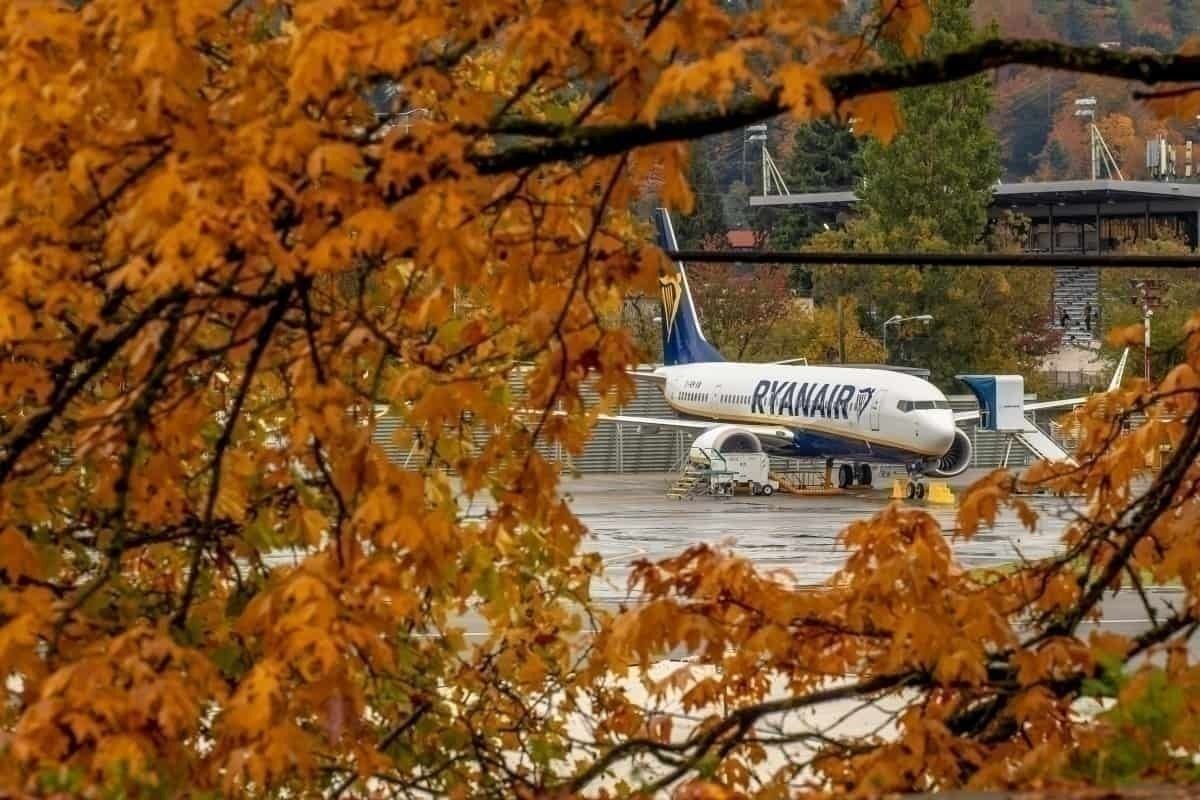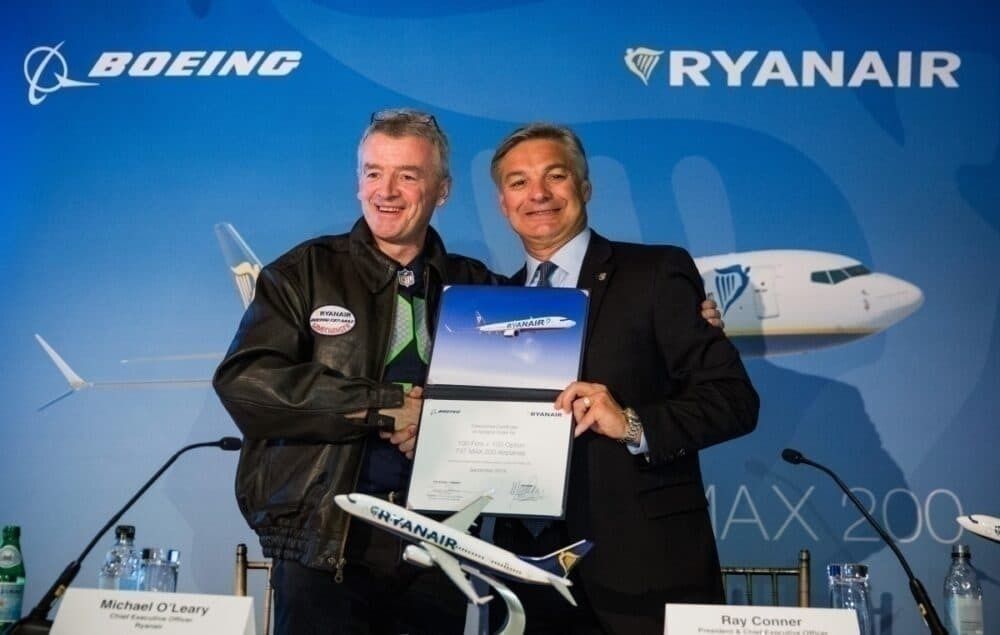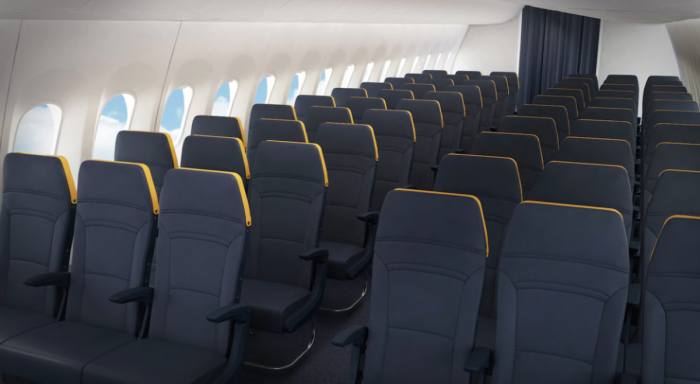Ryanair’s results for the first half of financial year 2020/21 saw the airline turning from a €1bn profit to €200m loss over the six months. Passenger traffic plummeted 80%, a symptom, it says, of the ever-changing government travel restrictions and quarantine requirements. Nevertheless, the airline is looking positively to the future, with hopes of getting its first Boeing 737 MAX in early 2021 and a fleet of 30 by the peak summer season.
Turning €1bn profit into €200m loss
The Ryanair half-year results are out, and the figures make for some painful reading. Passenger traffic plummeted 80% compared to the same period last year to just 17 million, a figure the airline blames on changing travel restrictions. Although a net loss of €197m ($229) is a world away from last year’s profit of almost €1bn ($1.3bn), there are some hopeful sentiments in the reports.
In particular, the group is betting big on the 737 MAX to change its fortune in the coming years. Within the report, Ryanair said,
“It is over 18-months since the Group was due to take delivery of its first Boeing 737-MAX-200 aircraft. Boeing expect a calendar Q4 return to service for the MAX-8, allowing Ryanair to, hopefully, accept delivery of its first MAX-200 in early 2021. We expect to take delivery of approx. 30 MAXs before peak S.2021.”
Ryanair has orders in with Boeing for up to 210 737 MAX aircraft, all of which are the specially configured -200 version, seating more passengers with an extra emergency exit to accommodate the upgraded limit. This is made up of 135 firm orders plus 75 options. Pending FAA and EASA approval of the type, the airline hopes to receive its full contingent over the next five years.
Targeting a fleet of 30 before the peak season next year is optimistic thinking on Ryanair’s part for sure. As we enter November, the 737 MAX is still not cleared to fly by the US regulator, let alone regulators anywhere else in the world. Ryanair’s special 200 seat version will require additional scrutiny, which will inevitably lead to delays, so it remains to be seen whether this is a realistic outlook.
Stay informed: Sign up for our daily aviation news digest.
Compensation still not revealed
Boeing has been forced to pay out compensation to airlines affected by the grounding of the 737 MAX. While Ryanair’s situation has inevitably had some reprieve given the events of 2020, the airline was still seeking reimbursement from the US manufacturer for the lack of aircraft deliveries.
It was hoped that some indication of this might have appeared in this earnings report, but as yet, nothing has been confirmed. The report stated,
“While the Group received supplier reimbursements in Q2, compensation discussions will not be finalized or concluded with Boeing until the MAX returns to service and revised delivery schedules can be finalized and agreed.”
Despite the difficulties presented by the grounding of the MAX and the ongoing lack of new aircraft in its fleet, Ryanair says it remains committed to the type. It said,
“We remain committed to the Boeing 737, particularly the new 200 series “gamechanger” aircraft, which have 4% more seats, 16% lower fuel burn, and 40% lower noise emissions. These new aircraft will enable Ryanair to grow to 200m passengers p.a. over the next 5 or 6 years while lowering the cost base and significantly reducing its environmental footprint.”
The airline says it only forecasts carrying around 21 million more passengers in the second half of its financial year. Recent rises in COVID cases across Europe and the start of second lockdowns in many countries has led the low-cost carrier to close bases and pull 20% of its winter capacity out of the network. While its relatively low levels of losses are a testament to its frugal business plan, there’s still a long way to go before it’s out of the woods for good.



